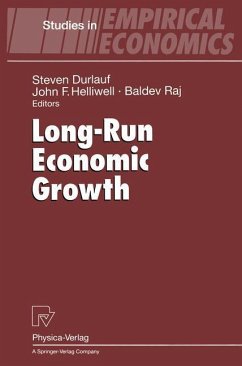
The Impact of Science on Economic Growth and its Cycles
The Mathematical Dynamics Determined by the Basic Macroeconomic Facts

PAYBACK Punkte
20 °P sammeln!
The author shows that the enormous gap between theory and facts in modern macroeconomics can only be eliminated by nonlinear macroeconomic dynamics with the following special characteristics: First of all, only certain group-theoretical invariants generate the correct growth cycles with irregularly varying lengths, not any stochastic process as usually applied for this purpose. Furthermore, a special extended value function and generalized human capital are needed for a correct representation of scientific and technological innovation. Finally, the correct nonlinear macroeconomic dynamics are ...
The author shows that the enormous gap between theory and facts in modern macroeconomics can only be eliminated by nonlinear macroeconomic dynamics with the following special characteristics: First of all, only certain group-theoretical invariants generate the correct growth cycles with irregularly varying lengths, not any stochastic process as usually applied for this purpose. Furthermore, a special extended value function and generalized human capital are needed for a correct representation of scientific and technological innovation. Finally, the correct nonlinear macroeconomic dynamics are not reducible to microeconomics, for both of the above mentioned reasons.














